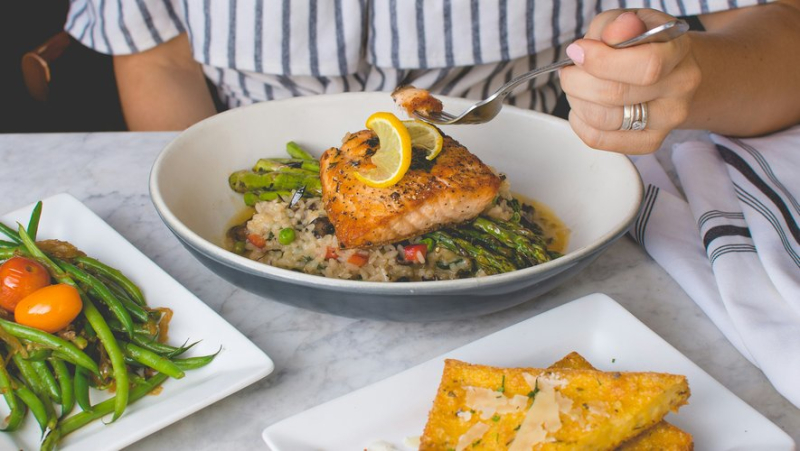How to eat well in the region ? Health, ecology, purchasing power, support for farmers… the complete guide

Il faut augmenter notre consommation de légumes et diminuer la viande. ILLUSTRATION UNSPLASH. – Travis Yewell
We eat more and more poorly. We have halved our consumption of agricultural products while those supplied by the agri-food industry have exploded. At the market or in supermarkets, it is difficult to reconcile health with purchasing power. Not to mention the recommendations concerning the environment and the living and working conditions of producers. A real headache.
How to eat well in all respects ? Health, ecology, purchasing power, social issues… Difficult to find your way around. We have tried to develop a complete guide for you.
Health
The French have three nutritional deficiencies and three nutritional defects. They lack fiber, antioxidants and omega 3 and consume too much meat, additives and pesticide residues. For the former, we know the refrain: five fruits and vegetables a day. Also consider varying the colors and cooking methods. It is the plant-based part of our diet that provides us with the most antioxidants.
Omega 3 is found in products of animal origin and in nuts. The fish are the champions: sardines, mackerel, salmon… hellip; On the meat side, some checks need to be made: beef raised on grass and pigs and lambs supplemented with flax. For vegetable oils: prefer walnut, rapeseed, soy and flax – preferably uncooked.
Protein must mainly come from legumes and cereals, combined because they are often “incomplete”. Also, prefer white meats and do not exceed three servings of red meat per week. As for eggs, a healthy person can eat up to six per week.
Finally, it's better to cook yourself. Limit processed foods as much as possible. If necessary, the ideal is to avoid turning to products with more than five ingredients.

Proximity
Eating local has four advantages: the low ecological impact of transport, the lower cost linked to this transport, transparency on production conditions and finally respect for the seasons for the plant part.
As for meats: beef from Aubrac or Gascon, bull from Camargue, veal from Aveyron or Segala, Rosée and Vedell from the Catalan Pyrenees, sheep from Barèges- Gavarnie, Farm Lamb from Quercy, Lozère, poultry from the Gers, chicken and capon from the Cévennes and black pork from Bigorre… Consuming meat less often allows you to afford these meats which, of course, turn out to be more expensive than from large suppliers.
For seafood and their precious omega 3, there are oysters and mussels from the Etang de Thau. And then anchovies, mackerel, bluefin tuna, and Mediterranean sardines.
As for vegetables, there are Tarbes beans, Roussillon artichokes, sweet onions from the Cévennes or Hautes-Pyrénées, rice from the Camargue and even potatoes from the Pyrénées-Orientales. For fruits, apricots are grown in Roussillon, grapes (excluding wine growing) in Tarn-et-Garonne, chestnuts in the Cévennes, melons and plums in Tarn and Lot… And since you have to eat nuts, certain varieties grow in the north of the region.
Solidarity and purchasing power
No more pre-filled trays of fruit and vegetables, prefer stalls selling by the kilo. For meat, try to buy it in small quantities more regularly via promotions due to short dates. Finally, if it concerns local products, keep in mind that approaching the producers directly will save you the costs of the distributor's margin and transport, provided that they are near you.
And if you live in town, two options are available to you: associative shops and pedestrian drives (for the advantageous prices of hypermarkets on the outskirts).
To support farmers, labels exist to guide you. Officials: Red Label, AOC, AOP, IGP, AB and STG. And unofficial: “Who's the boss” – which was much talked about during the farmers' crisis – the labels “Fair France”, “Agri Ethique France” or & ldquo;Fair trade organic France” and “Responsible dairy”. Finally, the major distributors, via the “Thank you” d’Intermarché or “Engaged” de Leclerc, are committed to supporting producers and breeders.
I subscribe to read more




